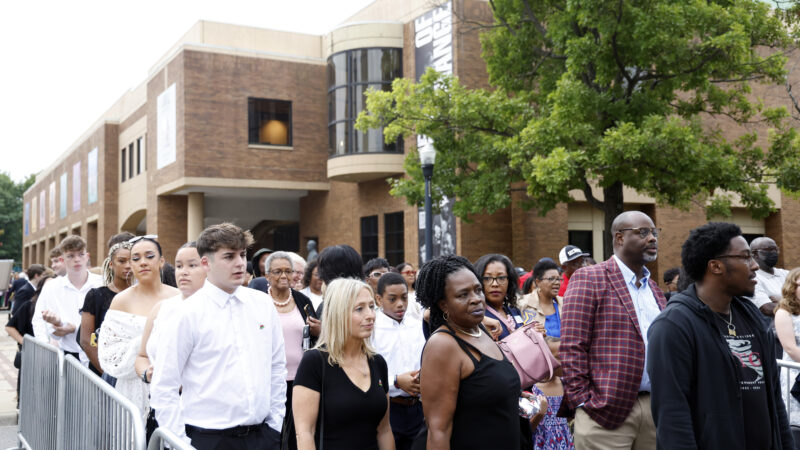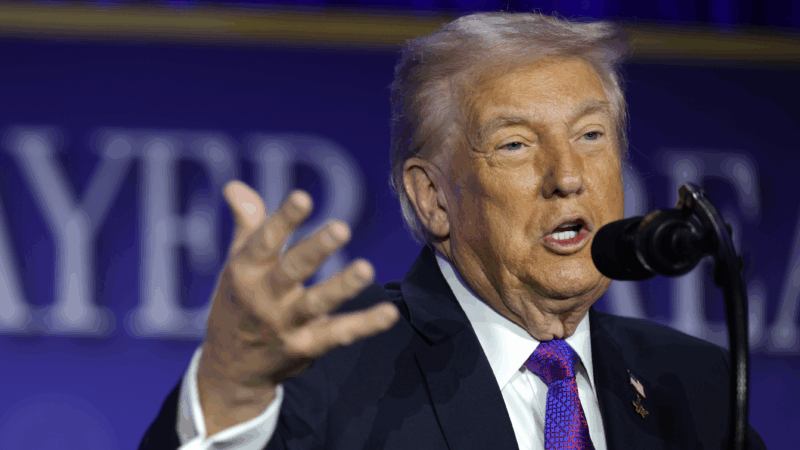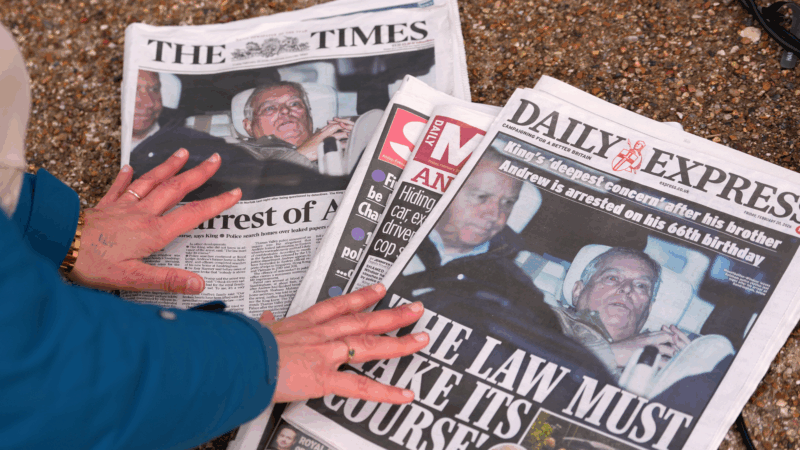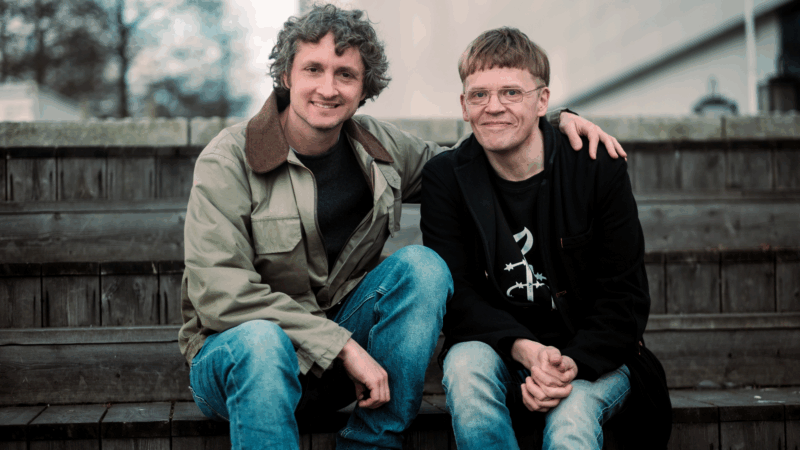Birmingham residents reflect on 60th anniversary of church bombing
Guest line up to attend the 60th Commemoration of the 16th Street Baptist Church bombing Friday, Sept. 15, 2023, in Birmingham, Ala. (AP Pool Photo/Butch Dill)
By Joseph King, Maya Miller, Kelsey Shelton & Andrew Yeager
At exactly 10:22 a.m. on Friday, church bells — and the shofar at Temple Beth-El synagogue — rang out across Birmingham to honor those killed in the bombing of the 16th Street Baptist Church. It’s the 60th anniversary of the deadly attack that killed four young girls — 11-year-old Denise McNair, Addie Mae Collins, Carole Robertson and Cynthia Wesley, all 14 — and injured dozens more.
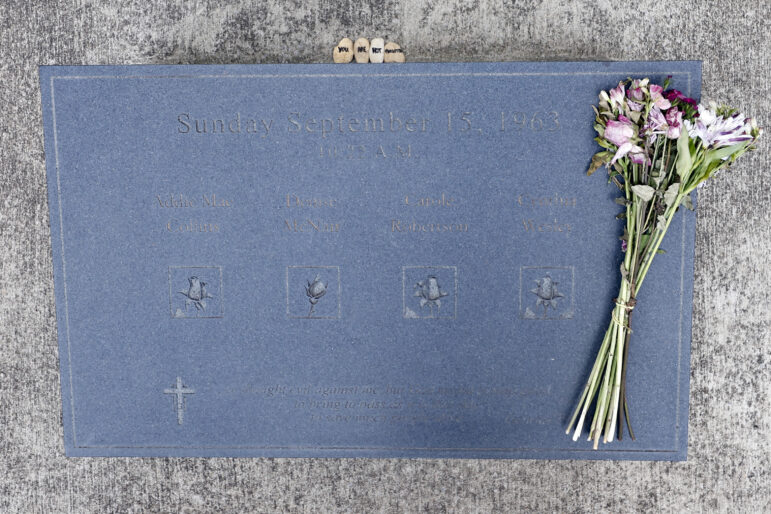
Inside the historic church, a crowd heard a message from Supreme Court Justice Ketanji Brown Jackson.
Outside, small groups of people gathered all over the city to commemorate the anniversary and reflect on the violence of the past and the progress the community has made over the decades.
Reporters with WBHM and the Gulf States Newsroom spoke to several people after the service to ask for their reflections on the 60th anniversary of the attack.
Here is what they said:
Babara Aland
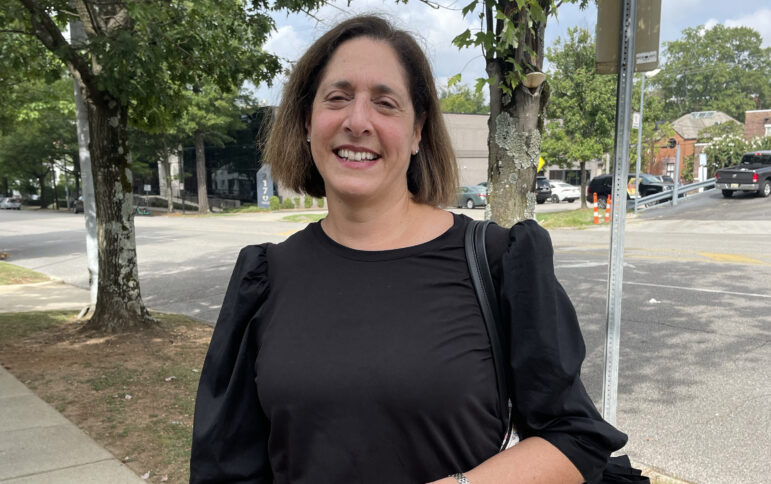
All hate is the same and it comes from a place of fear or sometimes ignorance, and we really have to work continuously to fight it.
Jim Carnes
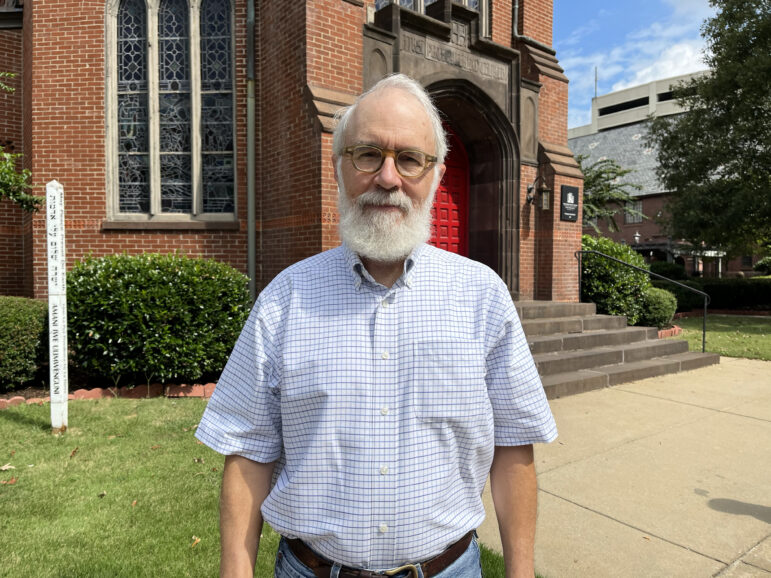
I had the privilege this morning of ringing the bell in the tower at the First Presbyterian Church. The tolling of a bell is a solemn act and I thought of the horror of that day — I was alive, not living in Birmingham at the time, but over in Mississippi. One thing that came to my mind is how long it took for me to learn about that event and to be able to try to make some sense of it in its aftermath. It happened at a time when there, as you know, was no immediate dissemination of news. It was probably a very guarded piece of information.
I understand from friends who were here in Birmingham at the time that it felt like a distant event even to people who lived in nearby neighborhoods. They didn’t really know what had happened or know the details. And, I think families protected their children from the information. So, that’s something that has changed dramatically.
I think the main thought that I had was the question: What were the forces for good in Birmingham at that time? One would think that churches might have been an organized force for good, but we saw very little evidence of that at the time. I think pastors in white churches, maybe some reluctantly mentioned the event from the pulpit, but there wasn’t the outcry that you might expect.
I look around Birmingham today and see all of the just amazing energetic forces for good here. We have a totally different landscape now.
Elizabeth Goodrich
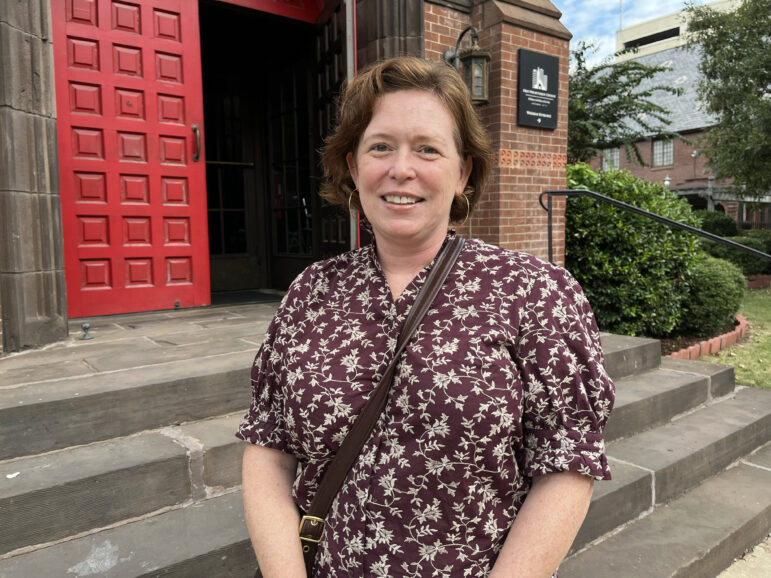
I could hear children playing on the church playground as we were listening to the bells and that was really meaningful to me to think about these young lives in Birmingham. Young lives cut short and young lives that this community is now doing everything they can to make sure they have the opportunity to flourish.
Something I wish people out in the world understood about living in Birmingham is that we don’t really have the luxury of hiding from our history here. It’s in front of us every day if we’re willing to look at it and I think many people are and we want to know our history and we just recommit ourselves regularly to doing better.
I think we’ve learned that history really matters, and telling the truth about our history really matters and that there is good and bad in all of us and part of what we have to do as a community is help each other listen to our better angels more often than not.
Rabbi Steven Henkin
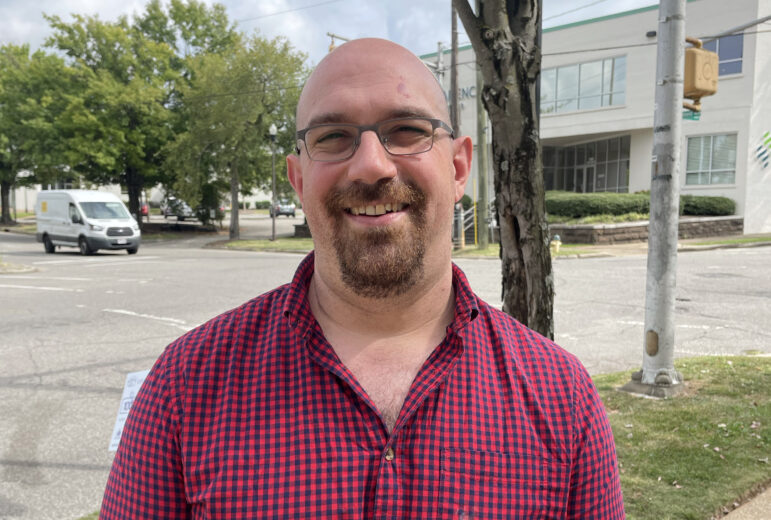
I am the Rabbi here at Temple Beth El. What I was thinking about was how 60 years ago, there was so much hatred and animosity towards our fellow people. And part of what the shofar is supposed to represent is a spiritual alarm clock, so to speak, to wake us up from the fact that we sleep through life so much of the time and to wake us up to our true values and what God truly wants of us.
And how, while we’ve made much progress both as a community and as a world, in 60 years, there’s still a lot of work left to do. And hoping this will help wake us up to build a better world and a better Birmingham.
Robert Lawton Higgs Sr.
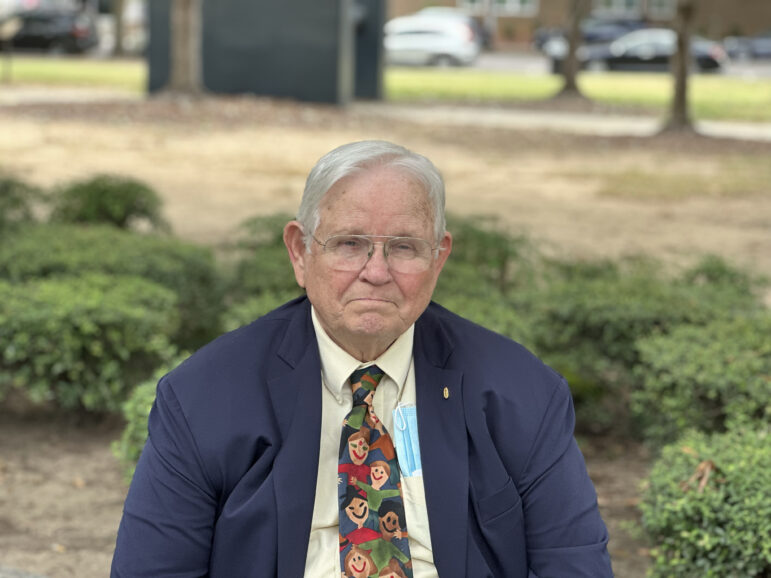
Those bells are tolling for our institutions, our boards of education, our city councils, our corporations…our state legislature, our governors. We still have mass incarceration, we’re still building prisons. What’s the difference between blowing up and killing those beautiful children — than to incarcerate them to life without hope. Those bells are a call to abolish the systems of harm and punishment in Alabama and they’re still very powerful.
We’re really not concerned that our children are dying and are uneducated and don’t have living wage jobs with healthcare. We can’t even expand Medicaid. How many children in Alabama are dying right now. So that’s what I thought when the bells rung.
What amazes me is that there’s still so much opposition. You know, the white southern redeemers were fascists and denied all those truths. I am really amazed that it’s still around and that so many people are more concerned about white supremacy than they are about human rights and civil rights. I had no idea the opposition was so strong.
Ronald Levitt
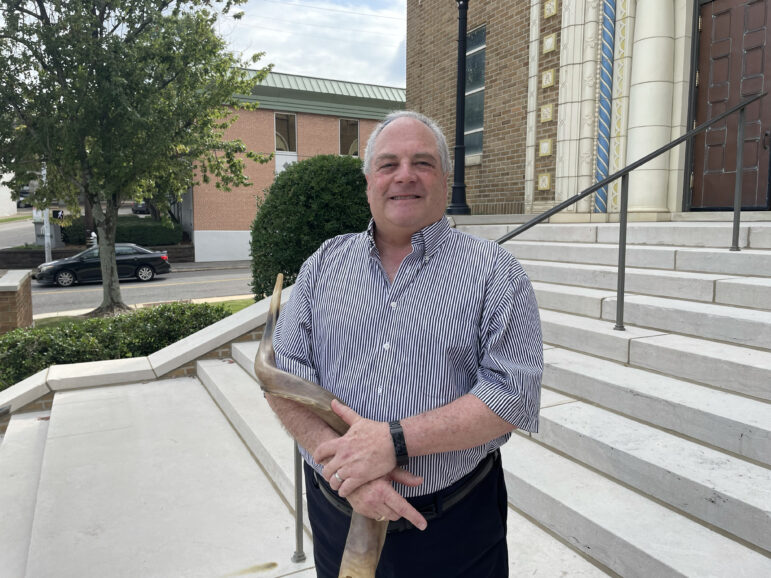
This is a different experience where the Jewish community is throwing in and being a part of something that’s a citywide commemoration of a horrible event that happened, that almost happened to us [Temple Beth El] before that.
Margaret Norman
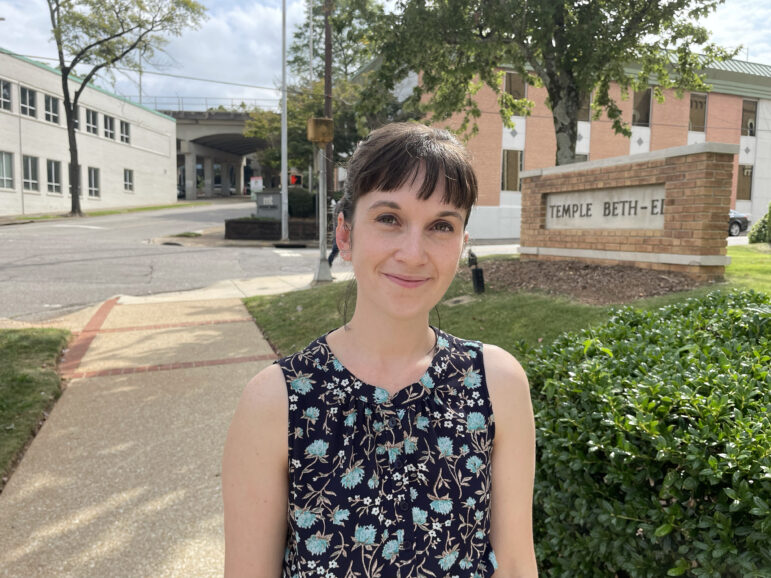
I’m the director of programming and engagement at Temple Beth El. We were invited to participate, and I think it was an obvious yes for us to do so.
We were excited to show our support to Lisa McNair and the entire Birmingham community. We really feel powerfully that it’s important for us, as Temple Beth El, to show up as part of Birmingham.
And so it’s not even a question of being compelled. It’s obvious for us that, something like this, we want to be allies, we want to show our support and we were going to be here.
Michelle Prettyman
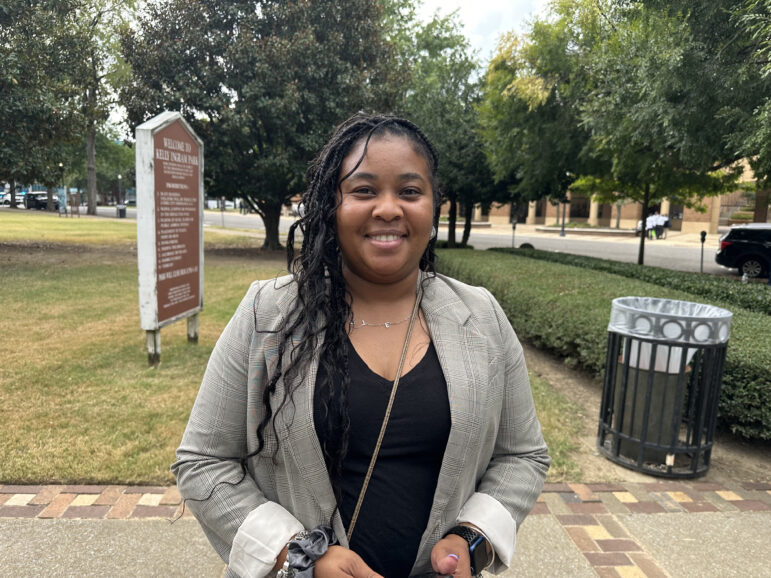
So, I was born in Philadelphia. My grandmother and mother are from Birmingham, Alabama. I lived here from birth up to fourth grade and then I moved back to Philadelphia, where I currently reside.
I’m just proud to be here. I’m definitely paying homage to the four little girls, to the fallen footsoldiers, to all of those who marched and fought and lost their lives so that we could be here today.
At some points it may seem like slow progress but we’ve learned over the years that some progress is better than none. And at this point to be where we all are in history and progressively, I think they’ve done a good job. I’m proud. I think my grandmother and others would be proud.
Francis Rushton
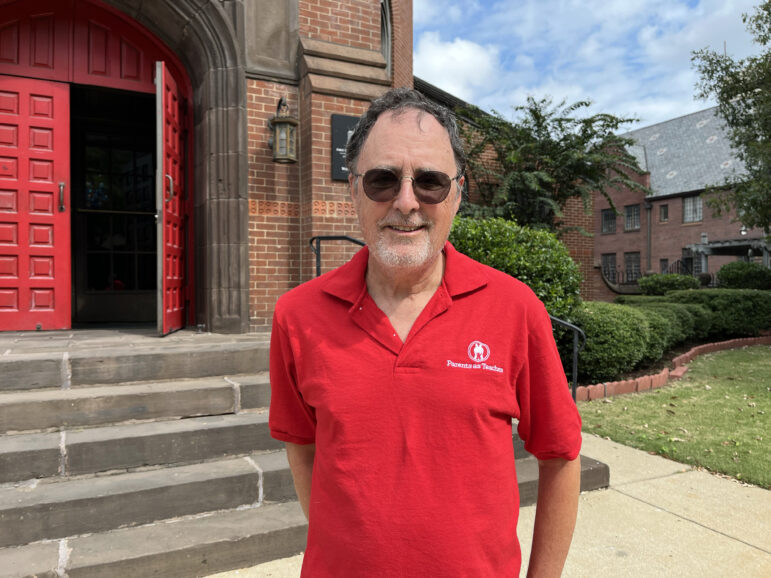
I’m on the steps of the First Presbyterian Church here in downtown Birmingham. And, proud to be a member of this church. I think this church understands that we have a place in the history of the civil rights movement and we still have a lot of work to do.
1963 was a tumultuous year and certainly the death of these six kids, it’s a very traumatic event for the community here in Birmingham. But it was also the year of Martin Luther King’s Letter from a Birmingham Jail and this is one of the churches that Martin Luther King wrote that letter to.
In some ways, we at this church feel as though Martin Luther King was a prophet come to us to tell us that what we were doing — at least in the white church community — was not appropriate in terms of making sure that everyone in this community had equal access to jobs, justice, education, whatever. The Letter from a Birmingham Jail had a profound effect on this particular church… it also changed the way this church operates, I think. You know, 60 years is a long time but still, today, we consider ourselves to be a social justice congregation. A congregation that’s called by Jesus to make this a just world.
You know, it’s a solemn remembrance of four girls and two boys being murdered. Unfortunately in Birmingham, we still have children who are being murdered. Maybe not in the context of the Civil Rights Movement, but in the amount of gun violence we have in this community. I’m a pediatrician and it makes me very sad to see the number of kids who succumb to gun violence almost every day — so those bells reminded me of that.
Trump calls SCOTUS tariffs decision ‘deeply disappointing’ and lays out path forward
President Trump claimed the justices opposing his position were acting because of partisanship, though three of those ruling against his tariffs were appointed by Republican presidents.
The U.S. men’s hockey team to face Slovakia for a spot in an Olympic gold medal match
After an overtime nailbiter in the quarterfinals, the Americans return to the ice Friday in Milan to face the upstart Slovakia for a chance to play Canada in Sunday's Olympic gold medal game.
NASA eyes March 6 to launch 4 astronauts to the moon on Artemis II mission
The four astronauts heading to the moon for the lunar fly-by are the first humans to venture there since 1972. The ten-day mission will travel more than 600,000 miles.
Skis? Check. Poles? Check. Knitting needles? Naturally
A number of Olympic athletes have turned to knitting during the heat of the Games, including Ben Ogden, who this week became the most decorated American male Olympic cross-country skier.
Police search former Prince Andrew’s home a day after his arrest over Epstein ties
Andrew Mountbatten-Windsor, the British former prince, is being investigated on suspicion of misconduct in public office related to his friendship with the late convicted sex offender Jeffrey Epstein.
Violinist Pekka Kuusisto is not afraid to ruffle a few feathers
On his new album, the violinist completely rethinks The Lark Ascending by Ralph Vaughan Williams, and leans into old folk songs with the help of Sam Amidon.

